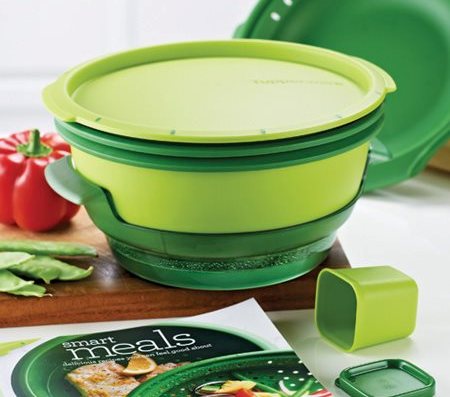Want to learn more about Canadian Tupperware consultants? Read on for info on how the company used women to act as Canadian Tupperware consultants to market their food storage containers…
In North America, the name Tupperware is as synonymous with food storage containers as Ziploc is for plastic sandwich bags, Kleenex for tissue papers, and Hoover for vacuum cleaners. Some product brand names become so ingrained and associated in the psyche with their intended use that even when not using the company’s products, one tends to use the name of the brand. This is the holy grail of marketing for there is no better publicity than a few million people calling out the name of your product every day instead of using any generic terms.
Tupper Invents a Unique Product
Tupperware is also not that old a company. It was only recently founded by Earl S. Tupper in 1946. He used his famous patented sealing mechanism in the ubiquitous blue plastic lid that kept the food sealed and airtight for long periods. The softness of the closing and opening mechanism made the lid easy to open and it was still difficult to inadvertently peel it off while carrying it. You had to run your fingers under the little protruding lip of the lid that ran all the way around the container and lift it up.
This mechanism differentiated the brand from all other plastic containers in the market. The striking neon plastic colors of the lid and the space age shatter-resistant clear plastic material of the container body were a great hit with a nation that would soon be infatuated by rocket fins on their cars and all the rocket-age nylon and plastic products that their hearts desired to buy.
The Tupperware Party
Brownie Wise came over from Stanley Home Products to devise a brilliant new strategy designed to drive sales expansion at least cost. His direct-to-the customer marketing model used women made redundant from their Second World War jobs to host the famous Tupperware Parties.
Women were hired as Tupperware consultants to take the product and popularize it in their communities. They could take the product to show and market their numbers and were encouraged to hold Tupperware parties at their residences or at a friend’s. This commission-driven strategy was very profitable for Tupperware and sales went through the roof in a short time. Jubilee parties held to commemorate the most successful Tupperware ladies helped to retain and motivate the expanding workforce.
Tupperware spread to the rest of the world through the same model. A Tupperware party held in Weybridge, England was instrumental in bringing the brand to Europe from where it also spread to Asia and Southern Africa. Indeed, Germany and France are as important to the brand these days as the North American market.
There are nearly two million Tupperware consultants worldwide and Tupperware actively recruits for more. Tupperware consultants in Canada are encouraged through free gifts to recruit new ladies into the fold and the company actively canvasses for consultants through their Canadian website and in their catalogs mailed directly to people’s homes.





